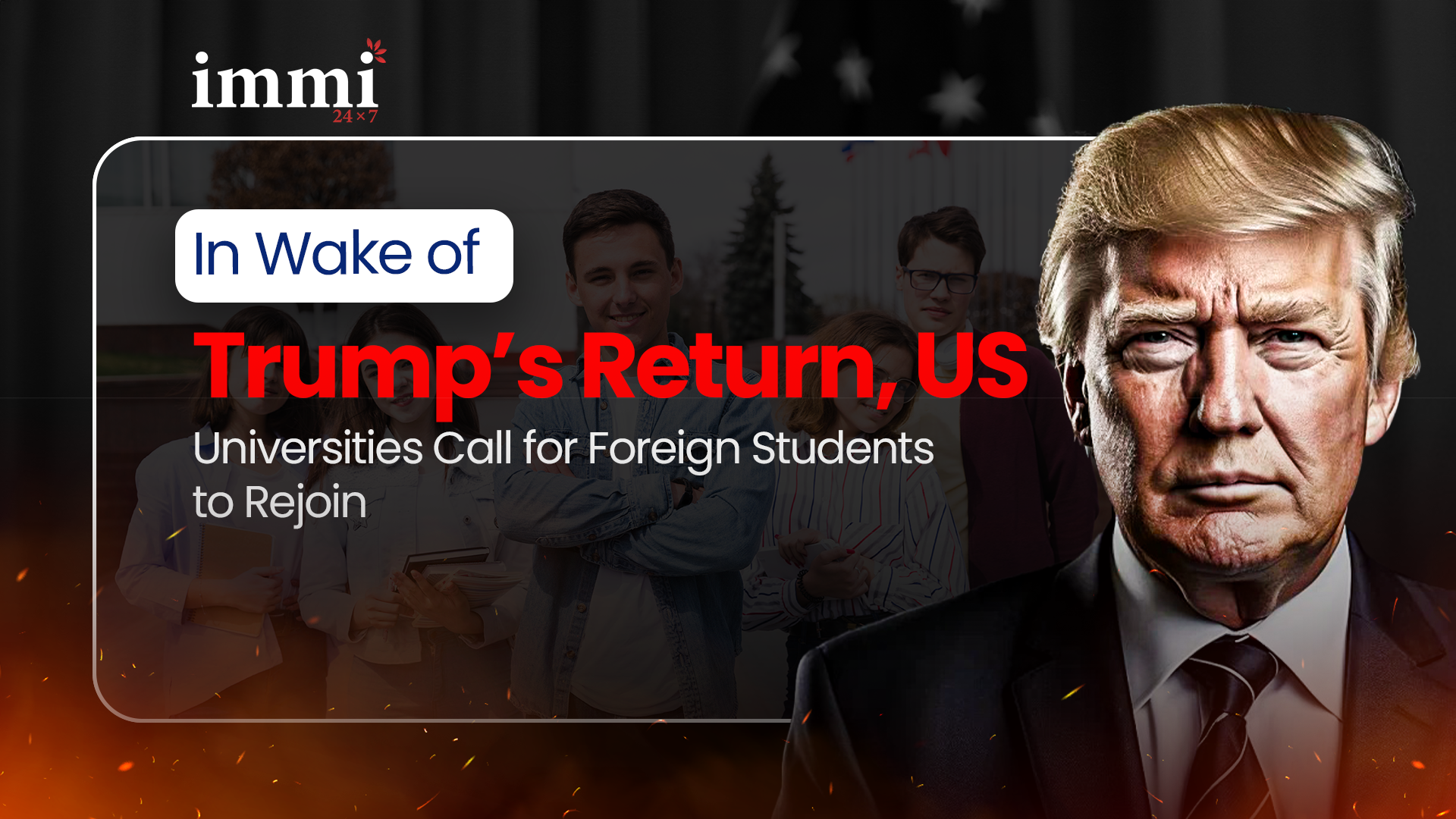
As the United States braces for the inauguration of Donald Trump as its 47th president on January 20, 2024, international students, particularly those from India, are facing a wave of uncertainty. Several leading US universities have issued travel advisories, urging their international students to return to the US before the inauguration amid concerns about potential changes to US immigration policies.
In anticipation of possible travel disruptions and policy shifts, top institutions such as the University of Massachusetts Amherst and Wesleyan University have advised their international student populations to return to the US by January 19, 2024. This cautionary guidance stems from the fear of possible travel bans or visa restrictions under the incoming administration, similar to the controversial travel ban enacted in 2017.
The University of Massachusetts Amherst emphasized the importance of preparing for any potential travel restrictions. The university’s advisory noted, “Given that a new presidential administration can enact policies on its first day in office, and based on previous experiences with travel bans, this advisory is made out of an abundance of caution.”
Wesleyan University echoed these sentiments, with the university’s Office of International Student Affairs sending a message advising students to be physically present in the US before January 19, 2024, to avoid difficulties with re-entry.
David Elwell, Associate Dean at the Massachusetts Institute of Technology (MIT), also offered advice for international students, urging them to carefully assess their travel plans. He highlighted potential delays in visa processing and the risks of being outside the US when new policies are implemented.
For Indian students, the prospect of new US immigration restrictions brings back memories of the 2017 travel ban, which affected nationals from seven predominantly Muslim countries and sparked widespread protests. This time, however, there is added concern due to the rising number of Indian students in the US.
According to the Open Doors 2024 Report, India has surpassed China to become the leading country of origin for international students in the US, with more than 331,000 Indian students enrolled for the 2023-2024 academic year—a 23% increase from the previous year. This surge reflects India’s growing importance in the US academic ecosystem, making these students a vital part of the higher education landscape.
In response to these challenges, several universities are taking proactive steps to ensure the safety and security of their international student bodies. Yale University, for example, recently hosted a webinar to address students’ concerns about potential changes to immigration policies under the new administration. Many other institutions are preparing to advocate against any policies that might disrupt the educational journeys of international students.
Meanwhile, the Indian Ministry of External Affairs has acknowledged the situation and encouraged Indian nationals in the US to stay informed about any changes to travel and visa regulations. While no formal advisory has been issued, the ministry continues to monitor developments closely.
The US remains one of the most sought-after destinations for Indian students pursuing higher education, with its diverse academic offerings and global recognition. As the situation unfolds, Indian students and their families are encouraged to stay informed and connected with university resources to navigate any potential changes to US immigration policies.
As we move closer to President Trump’s inauguration, it is clear that international students, especially those from India, will continue to play a key role in shaping the future of US higher education. While the path ahead may be uncertain, these students' resilience and determination will undoubtedly continue to contribute to the cultural and academic richness of US campuses.
As a news editor, I believe this content presents an important and timely issue in a thoughtful and balanced manner, while also highlighting the proactive steps taken by US universities to support international students, especially those from India. The piece does an excellent job of addressing the uncertainty surrounding potential changes to US immigration policies following Donald Trump’s upcoming inauguration while remaining optimistic about the resilience and adaptability of Indian students in navigating such challenges.
The use of relevant statistics—like the significant increase in Indian students studying in the US—adds context and underscores the vital role these students play in the academic and cultural landscape of American higher education. This not only reassures Indian students and their families but also reminds readers of the positive contributions international students make to the US.
Moreover, the article strikes a positive and supportive tone by emphasizing the proactive measures universities are taking to safeguard students’ interests, such as offering guidance and resources. It also highlights the importance of staying informed, creating a sense of empowerment for those affected by the potential changes.
The mention of India's Ministry of External Affairs urging students to stay updated on travel rules adds a diplomatic touch, conveying that the Indian government is monitoring the situation closely and supporting its nationals abroad.
Overall, the content succeeds in humanizing the story, presenting a narrative that is both informative and encouraging, and I believe it will resonate well with readers. It's a clear, well-written piece that balances the challenges with the hopeful actions being taken to support the international student community in the US.
Comments